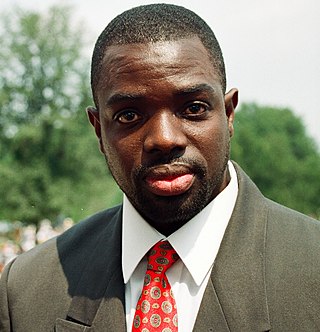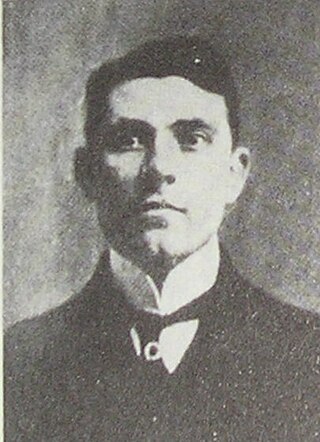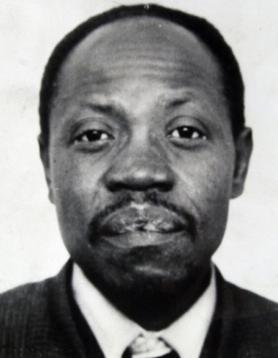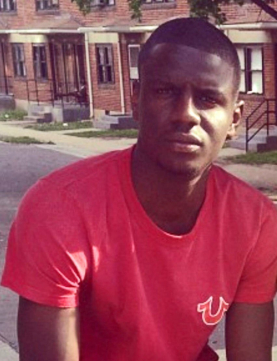Related Research Articles
Malice Green was an American resident of Detroit, Michigan who died after being assaulted by Detroit police officers Walter Budzyn and Larry Nevers on November 5, 1992. The official cause of death was ruled to be due to blunt force trauma to his head.

Abner Louima is a Haitian American man who, in 1997, was physically attacked, brutalized, and raped by officers of the New York City Police Department (NYPD) after he was arrested outside a Brooklyn nightclub. His injuries were so severe that he required three major surgeries.

Dalian Robert Atkinson was an English professional footballer who played as a striker.

Lancashire Constabulary is the territorial police force responsible for policing the ceremonial county of Lancashire in North West England. The force's headquarters are at Hutton, near the city of Preston. As of September 2020, the force has 3,088 police officers, 190 special constables, and 280 police community support officers (PCSO), 300 police support volunteers (PSV), and 2,287 staff.
Frank Jude Jr., a.k.a. Frankie Lee Jude Jr., is a Wisconsin man who was severely beaten and tortured by off-duty Milwaukee police officers in the early-morning hours of October 24, 2004. The police had erroneously accused him of stealing a police badge, and screamed racial slurs at him during the attack. They also had beaten Jude's friend, Lovell Harris, but Harris was able to escape the attack.

James T. Ellison, better known as Biff Ellison, was a New York City gangster affiliated with the Five Points Gang and later a leader of the Gopher Gang. He was noted for his propensity for physical violence as well as a dapper appearance that led The New York Times to describe him as "looking like a prosperous banker or broker" and contemporary chroniclers as "smooth-faced, high-featured, well-dressed, a Gangland cavalier" and "a fop in matters of dress".
The 2004 Palm Island death in custody incident relates to the death of an Aboriginal resident of Palm Island, Cameron Doomadgee on Friday, 19 November 2004 in a police cell. The death of Mulrunji led to civic disturbances on the island and a legal, political and media sensation that continued for fourteen years.

David Oluwale (1930–1969) was a British Nigerian who drowned in the River Aire in Leeds, West Riding of Yorkshire, in 1969. The events leading to his drowning have been described as "the physical and psychological destruction of a homeless Black man, whose brutal and systematic harassment was orchestrated by the Leeds City Police Force." Oluwale's death led to the first successful prosecution of British police officers for their involvement in the death of a Black person. The legacy of his life, experiences, and death has shaped discussions on systemic racism within British legal institutions, police brutality and practices, inequality, and mental health policy. He has inspired artworks, been the subject of several books and documentaries, and is commemorated by a blue plaque in Leeds.

Oscar Grant III was a 22-year-old Black man who was killed in the early morning hours of New Year's Day 2009 by BART Police Officer Johannes Mehserle in Oakland, California. Responding to reports of a fight on a crowded Bay Area Rapid Transit train returning from San Francisco, BART Police officers detained Grant and several other passengers on the platform at the Fruitvale BART Station. BART officer Anthony Pirone kneed Grant in the head and forced Grant to lie face down on the platform. Officer Johannes Mehserle drew his pistol and shot Grant. Grant was rushed to Highland Hospital in Oakland and pronounced dead later that day. The events were captured on bystanders’ mobile phones. Owners disseminated their footage to media outlets and to various websites where it went viral. Both protests and riots took place in the following days.
Oluwashijibomi "Shiji" Lapite was a 34-year-old Nigerian asylum seeker who died in the back of a police van shortly after being detained by two officers from Stoke Newington police station in London.

The Epsom riot took place on 17 June 1919 when between 300 and 800 Canadian soldiers rioted and attacked the police station in Epsom, Surrey, England. Station Sergeant Thomas Green, a British police officer, was injured during the incident and died the following day.

Christopher Alder was a trainee computer programmer and former British Army paratrooper who had served in the Falklands War and was commended for his service with the Army in Northern Ireland. He died in police custody at Queen's Gardens Police Station, Kingston upon Hull, in April 1998. The case became a cause célèbre for civil rights campaigners in the United Kingdom. He had earlier been the victim of an assault outside a nightclub and was taken to Hull Royal Infirmary where, possibly as a result of his head injury, staff said his behaviour was "extremely troublesome." He was escorted from the hospital by two police officers who arrested him to prevent a breach of the peace.

John Peter Pat was an Aboriginal Australian boy who, at the age of 16, died while in the custody of Western Australia Police.

On April 12, 2015, Freddie Carlos Gray Jr., a 25-year-old African American, was arrested by the Baltimore Police Department for possession of a knife. While in police custody, Gray sustained fatal injuries and was taken to the R Adams Cowley Shock Trauma Center. Gray's death on April 19, 2015, was ascribed to injuries to his cervical spinal cord.
The killing of William L. Chapman II, a black 18-year-old, occurred on April 22, 2015, in Portsmouth, Virginia, when Chapman was shot and killed in a Wal-Mart parking lot by Portsmouth Police Officer Stephen D. Rankin. Rankin had been responding to a report of suspected shoplifting and engaged in a physical struggle with Chapman, who instigated the altercation while trying to arrest him. The shooting occurred approximately four years after the killing of Kirill Denyakin, who died after being shot by Rankin in 2011.
State of Minnesota v. Derek Michael Chauvin was an American criminal case in the District Court of Minnesota in 2021. Former Minneapolis police officer Derek Chauvin was tried and convicted for the murder of George Floyd, which occurred during an arrest on May 25, 2020, and led to global protests over racial injustice and police brutality. A 12-member jury found Chauvin guilty of unintentional second-degree murder, third-degree murder, and second-degree manslaughter. It was the first conviction of a white police officer in Minnesota for the murder of a black person.
On 29 July 2005, Richard Whelan was stabbed to death in Islington, London, United Kingdom, by a man who had been mistakenly released from custody that day.
References
- ↑ Lewis, Paul (19 July 2012). "Ian Tomlinson's family faced with two contradictory verdicts". The Guardian . London. Retrieved 20 May 2014.
- 1 2 3 "Boot Print on Dead Man's Shirt". Southport Visiter. 11 April 1986. Retrieved 20 May 2014.
- 1 2 3 4 5 "Police Sergeant is Gaoled for Killing Prisoner". The Guardian . London. 19 April 1986. Retrieved 20 May 2014.
- 1 2 "Pensioner Died After 'Brutal Police Assault'". The Guardian . London. 10 April 1986. Retrieved 20 May 2014.
- 1 2 "Accused Sergeant: Verdict is Near". Southport Visiter. 18 April 1986. Retrieved 20 May 2014.
- 1 2 3 "Seven Years for Killing Prisoner". Midweek Visiter. 23 April 1986. Retrieved 20 May 2014.